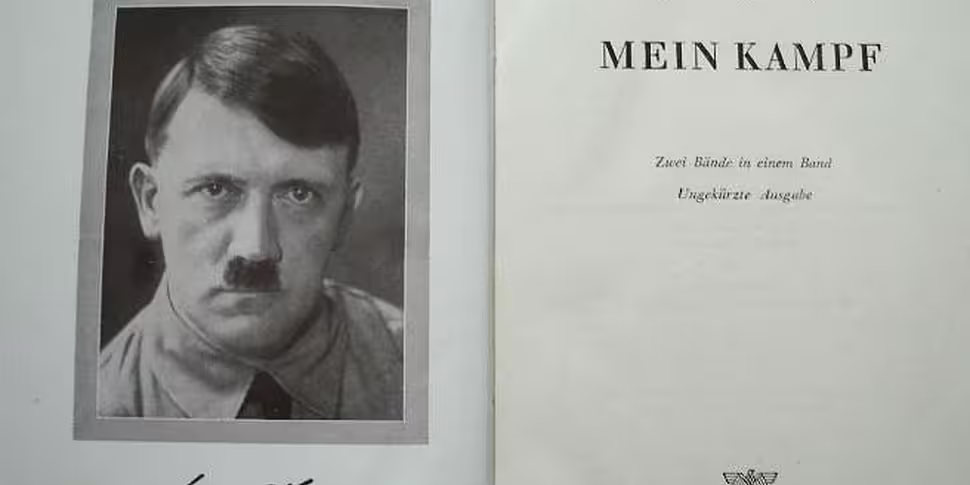With the text falling out of copyright in the coming months, debate is raging in Germany over whether or not the country should republish an annotated version of Hitler’s infamous text Mein Kampf.
On today’s Right Hook, George will talk to British journalist Allan Hall about the controversy surrounding the text, and whether notes added by historians and philosophers can truly add value to it. Tune in live today at 5.15pm: www.newstalk.com/player/
Early in 2014, the news broke that Mein Kampf had quietly become an e-book bestseller, rising to the top of the charts of political books in both Apple’s iTunes and Amazon’s Kindle stores, despite printed versions of the 1925 text falling year in, year out.
The last time the anti-Semitic diatribe broke into the US book charts was 1939, with sales beginning to peter off around the time the Nazis invaded Poland. But in January of 2014, a US blogger named Chris Faraone wrote “But with a flood of new e-book editions, Hitler’s notorious memoir just clocked a banner digital year.”
There followed a frenzy of journalistic columns all over the world, likening the craze of the text to 50 Shades of Grey, a shocking text that readers were eager to pore over, but which they were too afraid to actually purchase in a book shop. Were neo-Nazis and skinheads gathering in illicit book clubs to discuss Mein Kampf’s themes over brie and crackers with glasses of Liebfraumilch?
What everyone seemed to be forgetting was that when Mr Faraone noticed the book listed in the ‘Top Books’ section of the book-selling websites, he failed to figure out that it was purely an algorithmic effort to push a book with dwindling sales. When the story first broke, Mein Kampf was actually ranking between 7,000 and 9,000 on Amazon, and selling around 10 books a day.
That was, at least, until the online columns lined up like eager Nazis to parade the shocking news, and the propaganda pushed sales of Mein Kampf up to the top five on Apple as people rushed in to see what they were missing out on...

[Cracked]









